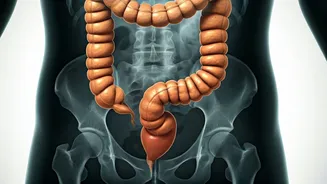Dangers of Delaying
Prolonged constipation can give rise to severe health concerns, according to a case study published by the National Institutes of Health (NIH). One of these
serious outcomes is fecal impaction, which means that hardened stool collects in the intestines, thereby becoming difficult to pass. This condition can lead to several uncomfortable symptoms, including abdominal pain and bloating. Failure to acknowledge and treat irregular bowel movements in a timely manner is critical to avoid potentially dangerous consequences. Beyond these digestive issues, going without pooping for extended periods can also have a significant impact on overall health. In extreme situations, the pressure exerted by the accumulation of stool can cause the intestines to rupture, releasing the contents into the abdominal cavity, where it can result in life-threatening infections. Additionally, chronic constipation has been linked to an increased risk of heart attacks and other cardiovascular events, possibly because of the added stress and inflammation placed on the body. Although not all instances of constipation lead to heart issues, a prolonged lack of bowel movements should not be ignored.
Recognize the Signs
Instead of focusing on how many days pass without a bowel movement, it's more crucial to pay attention to any accompanying symptoms. Among the most noticeable signs of prolonged constipation are bloating, abdominal discomfort, and a feeling of nausea. Some individuals may experience stomach cramps, vomiting, or an inability to pass gas. These symptoms show that the stool is piling up in the intestines, which might then result in further, more serious complications. The difficulty and straining that accompanies the passage of stool can also point to constipation. Additional symptoms of prolonged constipation include infrequent bowel movements (fewer than three times per week), a feeling of incomplete evacuation, rectal pain or discomfort during bowel movements, general sluggishness, fatigue due to toxin buildup, reduced appetite, and feeling full quickly. The presence of any of these signs over several days should motivate you to consult with a healthcare professional to prevent the condition from worsening and to ensure appropriate treatment.
Identify the Symptoms
Constipation presents a variety of symptoms that can help in its early recognition. Hard, dry, or lumpy stools are a clear sign that the stool has remained in the colon for too long, losing moisture and becoming difficult to pass. Bloating and abdominal discomfort often arise from the buildup of stool and gas in the intestines, leading to a feeling of heaviness and pressure in the abdomen. Nausea and loss of appetite are other indicators of constipation, as the lingering stool in the gut causes toxins and waste gases to slow digestion. Furthermore, cramping or stomach pain can also occur as the intestinal muscles contract more forcefully. These indicators highlight the importance of recognizing the issue to prevent complications. Promptly consulting with a doctor is essential when experiencing any of these signs for several days.
Understanding Causes
Variations in bowel habits are typical, but going for too long without pooping can indicate constipation or other underlying digestive problems. Recognizing the symptoms in the early stages helps prevent discomfort and helps maintain healthy bowel function. Every individual has a unique pattern, with a 'normal' frequency ranging from three times a day to once every two to three days. Usually, people recognize a routine in their bowel habits, and any sudden changes might indicate an issue. Going more than two to three days without a bowel movement can signal constipation. However, there is no universally safe timeframe, because factors such as diet, hydration, and physical activity play a significant role. If you haven’t had a bowel movement in a week despite eating normally, it could indicate an obstruction, chronic constipation, or a behavioral issue, and medical attention may be necessary.












